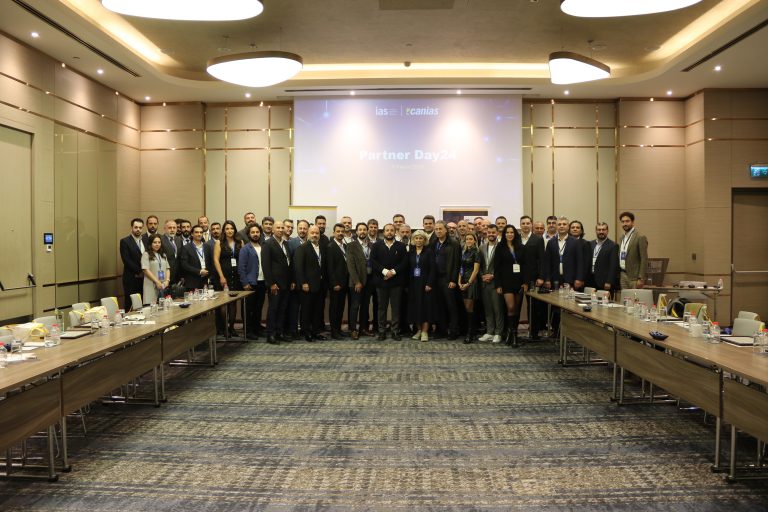Electronic Data Interchange
caniasERP Electronic Data Interchange (EDI) module ensures the electronic data interchange, which exceeds the system and company boundaries with its structure integrated to the whole system. All the data found in the system can be fully exported to external environments via standard or freely defined protocols such as EDIFACT, VDA, ODETTE, ANSI ASC X12 or in the same way, the data from external environments can also be transported to the caniasERP system completely without any problems. It is also possible to trigger the desired caniasERP process before or after data is imported/exported.
The following chart shows the integration of the module with the general system.
Integrated process workflow
In the Electronic Data Interchange module, electronic data interchange can be initiated and executed by defining business processes or events. For example, automatic and electronic delivery of purchase orders to vendors when they are saved or the automatic generation and delivery of the relevant documents to customers/vendors when there’s a sales/purchase process are done through this module. In addition, the module can be used to create production orders without the need of manual intervention; In case of dropping below the minimum storage amount, it is also possible to automatically generate and transfer a purchase order to the suppliers. In addition, this module can be used to transfer information generated as a part of the execution of intercompany business transactions.
Free protocol definition
In addition to standard protocols in the module, free protocol definitions can also be made for business-specific case solutions. Here, the target format can be defined as XML-based, CSV format, Excel file or other formats. It is possible to transfer data from different formats both to the system and from the system. The desired storage locations can be scanned at defined intervals to find and import the newly included protocol files. Through module’s fully integrated structure, the next steps are not limited to the actual use of the protocol. If relevant documents (e.g. invoice list for bulk invoices) need to be provided for Electronic Data Interchange supported communication, they can be freely defined and included in the process flow. The next possible steps may be storing in the file system, storing in the Document Management module, or sending an automatic mail or fax. In addition, all the save operations in the caniasERP can initiate the export process in the Electronic Data Interchange module. Thus, an order can be confirmed automatically via this module.
Creative usability*
Through the Electronic Data Interchange module, data can be imported and exported for external systems used correspondingly. For example, connection with a CAD software system for material and BOM changes received and processed through the module can be established. Thus, the changed properties and data of material in the design stage can be automatically adjusted with by updating the data records in the caniasERP, and new control plans, drawing versions or change indexes can be specified if necessary. Through the protocol’s adaptability and flexibility in matching (linking of data structures in the protocol and system), the data structure problems that may occur due to the changes in the software versions used by the data interchange parties are quickly revised.
Complete control over processes
All data transfers via electronic data interchange are displayed on dedicated screens, and
a log is created accordingly. Thus, continuous monitoring can be performed. In this way, a logging mechanism can be created for all data transfers, operations performed and errors that may occur, whether imported or exported. With its features such as evaluating, resending/retrieving data with errors and creating a logging mechanism for these errors, the Electronic Data Interchange module is a high-performance and reliable utility. Combined with other modules within the system, an ERP system that perfectly matches the needs of the company is created.
Integration
By using the module’s flexible data transfer and process triggering feature, it is possible to interact with all the modules within the system. With protocols prepared for creative use, two-way data transfer can be achieved, and processes can be triggered by interacting various modules such as: Sales Management, Purchase Management, Invoice Verification, Production Management, Inventory Management, Human Resources Management, Customer Relationship Management.
Features overview
- Support for all standard electronic data interchange protocols (e.g. EDIFACT, VDA, ODETTE, ANSI ASC X12 …)
- Ability to use non-standard custom protocols
- Detailed monitoring of all Electronic Data Exchange processes
- Logging for errors and causes
- Tracking import directories in the file system
- Automatically transfer documents to the file system or archive documents in the Document Management module
- Intercompany transactions
- Data transfer with web service
- Two-way data transfer with mail servers
- Triggering process after bidirectional data transfer

